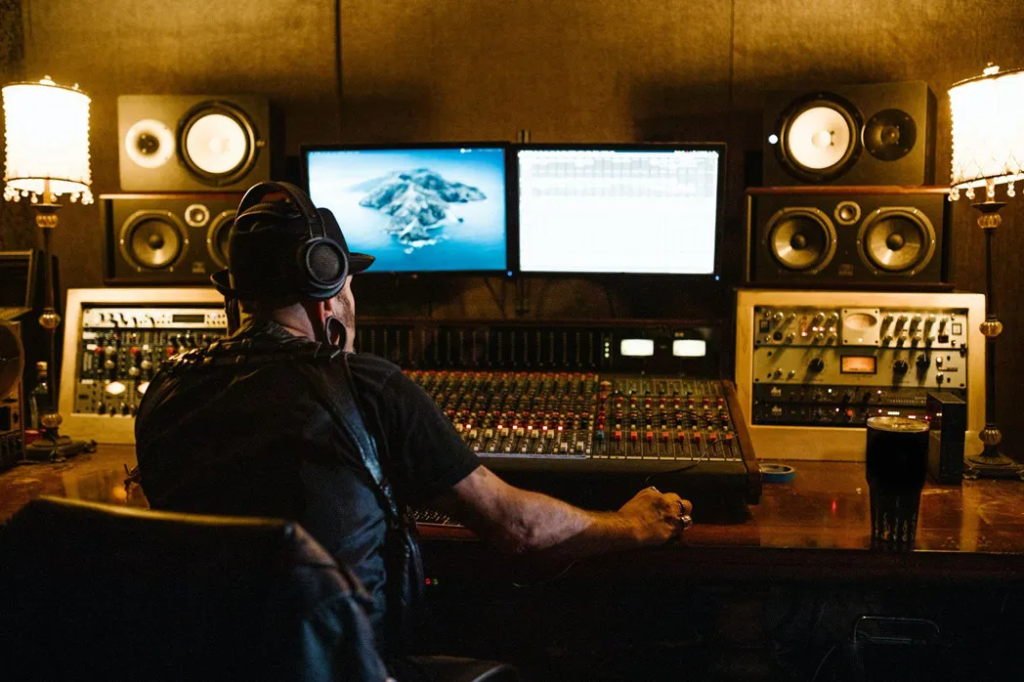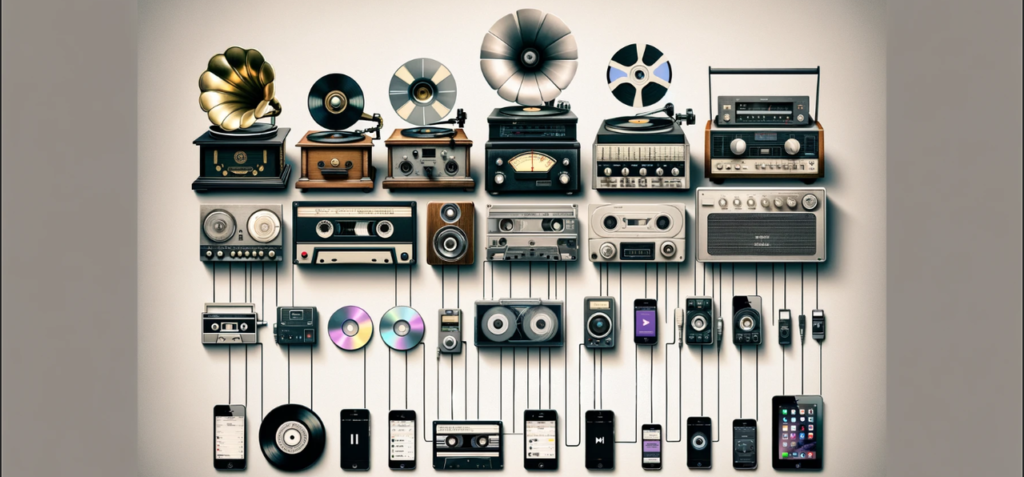
Introduction
The music industry has undergone a profound transformation over the past few decades, driven largely by advancements in technology. From the way music is created and distributed to how it’s consumed and monetized, technology has reshaped every facet of the industry. This article delves into the myriad ways technology is changing the music landscape, offering both challenges and opportunities for artists, producers, and consumers alike.
The Evolution of Music Creation

Digital Audio Workstations (DAWs)
The advent of Digital Audio Workstations (DAWs) has revolutionized music production. These software platforms enable musicians and producers to record, edit, and mix music with unprecedented ease and precision. DAWs like Ableton Live, Pro Tools, and Logic Pro X have democratized music creation, allowing independent artists to produce high-quality tracks without the need for expensive studio time.
Virtual Instruments and Plugins
Virtual instruments and plugins have further expanded the creative possibilities for musicians. These tools replicate the sounds of traditional instruments and synthesize new ones, providing a vast palette for artistic expression. Producers can now access an orchestra’s worth of instruments or experiment with electronic sounds, all from their computers.
Artificial Intelligence in Music Composition
Artificial intelligence (AI) is also making its mark on music creation. AI-powered tools can assist in composing music, generating melodies, and even producing complete songs. Platforms like Amper Music and AIVA use AI algorithms to create music tailored to specific moods and genres, helping artists and producers streamline their creative process.
Distribution and Access
Streaming Services
The rise of streaming services like Spotify, Apple Music, and Tidal has fundamentally altered how music is distributed and consumed. These platforms provide instant access to millions of songs, allowing listeners to explore a vast array of music from around the world. For artists, streaming offers a new revenue stream and a way to reach a global audience.
Social Media and Music Discovery
Social media platforms such as YouTube, TikTok, and Instagram have become crucial for music discovery and promotion. Viral trends and user-generated content can catapult unknown artists to stardom overnight. These platforms also allow musicians to engage directly with their fans, fostering a deeper connection and enhancing fan loyalty.
Digital Distribution Platforms
Digital distribution platforms like DistroKid, TuneCore, and CD Baby have made it easier for independent artists to distribute their music globally. These services handle the logistics of getting music onto streaming services and digital stores, enabling artists to focus on their craft.
The Impact on Live Performances
Virtual Concerts and Live Streaming
The COVID-19 pandemic accelerated the adoption of virtual concerts and live streaming. Platforms like Twitch, YouTube Live, and Facebook Live have become popular venues for artists to perform and connect with their audiences. Virtual reality (VR) concerts are also emerging, offering immersive experiences that replicate the feeling of being at a live show.
Ticketing and Event Management
Technology has streamlined the ticketing and event management process. Mobile apps and digital ticketing platforms like Eventbrite and Ticketmaster make it easier for fans to purchase tickets and for organizers to manage events. These platforms also offer data analytics, helping artists and promoters understand their audience and improve future events.
Monetization and Revenue Models

Streaming Royalties
While streaming services provide exposure, the revenue from streaming royalties has been a contentious issue. Artists often receive a fraction of a cent per stream, leading to debates about fair compensation. However, the widespread reach and data insights provided by these platforms can lead to additional revenue opportunities through merchandise sales, live performances, and sponsorships.
Crowdfunding and Direct Support
Crowdfunding platforms like Kickstarter and Patreon have opened new avenues for artists to fund their projects and receive direct support from fans. These platforms allow musicians to raise money for album production, tours, and other creative endeavors, fostering a sense of community and investment among their supporters.
Blockchain and NFTs
Blockchain technology and non-fungible tokens (NFTs) are poised to revolutionize music monetization. Blockchain can provide transparent and secure ways to manage royalties and copyright, ensuring artists receive their fair share of revenue. NFTs offer a new way for artists to sell unique digital assets, such as limited-edition albums, exclusive content, and virtual merchandise.
The Role of Data and Analytics
Audience Insights and Personalization
Data analytics tools provide artists and music professionals with valuable insights into audience behavior and preferences. Streaming platforms and social media offer detailed metrics on listener demographics, engagement, and geographical distribution. This data can inform marketing strategies, tour planning, and even creative decisions.
Predictive Analytics
Predictive analytics can help identify emerging trends and forecast future hits. By analyzing listening patterns and social media activity, these tools can predict which songs or artists are likely to gain popularity. This can assist record labels, radio stations, and streaming services in curating their content and making informed decisions.
Challenges and Considerations

Intellectual Property and Copyright
The digital age has brought new challenges in protecting intellectual property and managing copyright. Piracy and unauthorized distribution remain issues, despite efforts to combat them. Blockchain technology and improved digital rights management (DRM) systems are potential solutions to ensure artists’ work is protected and fairly compensated.
Equity and Access
While technology has democratized music creation and distribution, disparities in access to resources and technology still exist. Ensuring that all artists, regardless of background or location, have the opportunity to benefit from these advancements is crucial for a diverse and vibrant music industry.
Sustainability
The environmental impact of streaming and digital consumption is another consideration. Data centers and servers consume significant energy, leading to a growing conversation about the sustainability of digital music. Exploring greener technologies and practices will be important for the industry’s future.
Conclusion
Technology has undeniably transformed the music industry, offering unprecedented opportunities for creativity, distribution, and monetization. From the rise of digital production tools and AI in music creation to the proliferation of streaming services and social media, the landscape of music continues to evolve. While challenges such as fair compensation, intellectual property protection, and sustainability need to be addressed, the future of music is undoubtedly intertwined with technological innovation. As the industry navigates this dynamic landscape, the potential for artists and fans to connect and create in new ways remains vast and exciting.
For more such content, keep visiting QAWire
